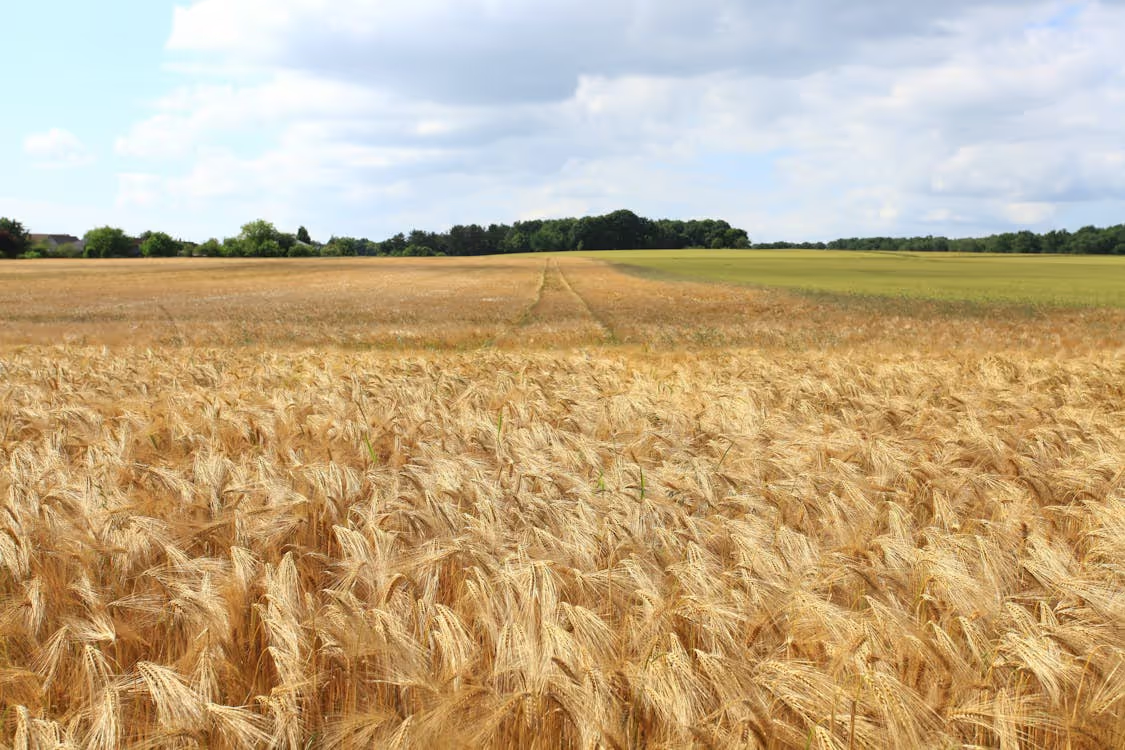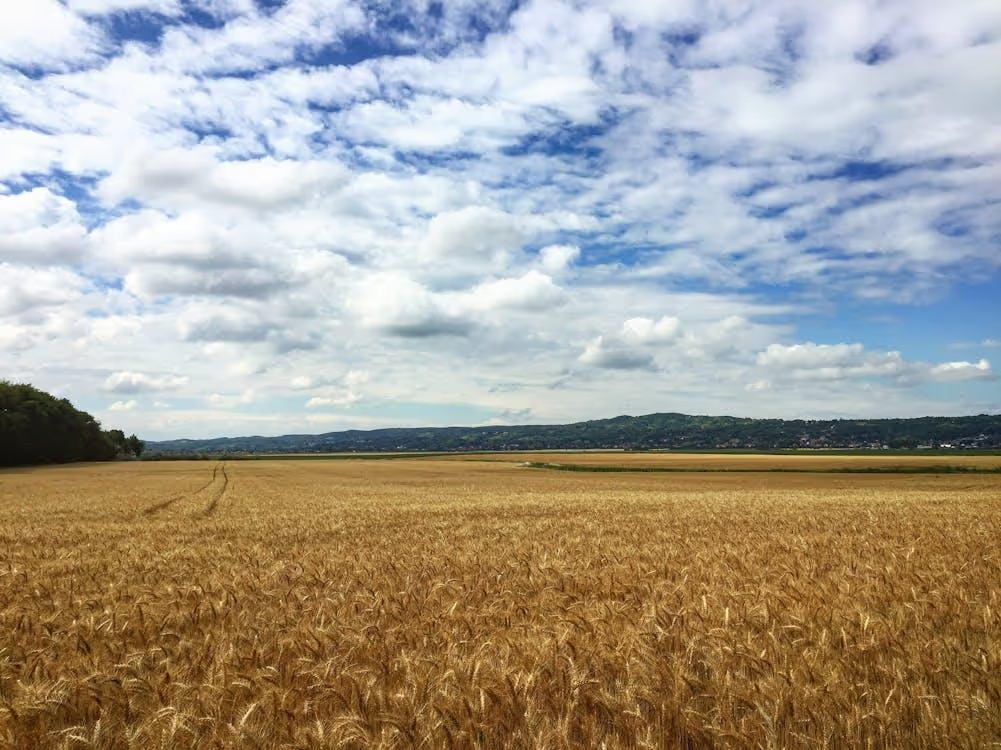How to Sell Agricultural Land in Georgia?
Return to BlogGet cash offer for your land today!
Ready for your next adventure? Fill in the contact form and get your cash offer.

By
Bart Waldon
Georgia's rich agricultural heritage is as diverse as its landscape. From the North Georgia mountains to the coastal plains, farming isn't just a business here – it's a way of life. But what happens when it's time to sell that piece of Georgia you've cultivated?
Let's dive into the nitty-gritty of selling agricultural land in the Peach State, with some fresh data to chew on. The University of Georgia's Center for Agribusiness and Economic Development reported that in 2021, agriculture pumped a whopping $69.4 billion into our state's economy. That's no small potatoes!
Even more exciting? The U.S. Department of Agriculture's latest figures show Georgia farmland values jumped by nearly $400 per acre in 2023. We're talking an average of $4,050 per acre – a 10.7% hike from the previous year. Cropland saw an even bigger boost, up 11.1% to $4,000 per acre, according to the Georgia Farm Bureau.
So, if you're thinking about selling your farm, you're looking at a market with some serious potential. But let's be real – selling land isn't like unloading a pickup truck full of peaches at the farmers' market. It takes time, know-how, and a good bit of patience. This guide aims to walk you through the process, step by step, so you can make the most of your land sale.
The Lay of the Land: Understanding Georgia's Farm Market
Before we get into the weeds of selling, let's talk about what's driving Georgia's agricultural land market:
- City Slickers Moving In: As Atlanta and other cities sprawl out, some farmland is becoming prime real estate for development.
- Crop Trends: Remember when everyone and their brother wanted to grow kale? Trends in farming can make certain types of land more valuable.
- Water, Water Everywhere?: Access to good water sources can make or break a farm's value.
- Dirt That Works: The quality of your soil can be a big selling point, especially in fertile areas like the Piedmont.
Knowing these factors can help you position your property in the best light.
Getting Your Ducks in a Row: Preparing Your Land for Sale
Before you stick that "For Sale" sign in the ground, there's some homework to do:
1. Take Stock of What You've Got
Make a list of everything your land has to offer:
- How many acres are we talking?
- What's the dirt like? (And I don't mean is it clean!)
- Where's the water coming from?
- Any buildings, and are they still standing?
- What kind of crops have you grown, and how well did they do?
- Any strings attached? (Think conservation easements or restrictions)
Having this info at your fingertips will save you headaches down the road.
2. Fix What Needs Fixing
Take a hard look at your property and address any issues:
- Patch up those fences and outbuildings
- Clear out the overgrown areas (nobody wants to buy a jungle)
- Tackle any erosion problems
- Make sure your property lines aren't causing neighborly feuds
3. Make It Pretty (Well, as Pretty as a Farm Can Be)
First impressions matter, even for farmland:
- Mow what needs mowing
- Clear out any junk piles
- Make sure folks can actually get to your property without breaking an axle
4. Gather Your Paperwork
Round up all the boring (but important) stuff:
- Deeds and titles
- Maps that would make Lewis and Clark proud
- Tax records (yes, all of them)
- Proof you've got water rights
- Zoning info
- Any leases or agreements currently in place
Having all this ready can speed things up when you find a buyer.

Pricing Your Piece of Georgia: Getting It Right
Pricing land is more art than science, but here are some ways to get it in the ballpark:
1. Bring in the Pros
A good appraiser who knows their way around a farm can give you a solid starting point.
2. Snoop on Your Neighbors
What have similar properties in your area sold for recently? This can give you a reality check on pricing.
3. Think About the Future
Could your land be the next big subdivision or the perfect spot for a trendy crop? Factor that potential into your price – but keep it realistic.
4. Read the Room
The farm market can be as unpredictable as Georgia weather. Keep an eye on things like crop prices and interest rates – they can affect land values.
Spreading the Word: Marketing Your Farm
Now that you're ready to sell, it's time to let people know:
1. Get Online
List your property on popular real estate websites and farm-specific platforms. Good photos are a must – nobody wants to see blurry shots of your barn.
2. Find a Farm-Savvy Agent
A real estate agent who knows their soybeans from their sorghum can be a big help.
3. Talk to the Neighbors
Word of mouth is still powerful in rural communities. Let local farmers and ag associations know you're selling.
4. Show It Off
Create some nice brochures or info packets about your land. Include maps, soil reports, and anything else that shows off your property's potential.
5. Open the Gates
Host some tours or open houses. Let potential buyers kick the tires (or the dirt) themselves.
Sealing the Deal: Navigating the Sale Process
Once you've got some nibbles, here's how to reel them in:
1. Be Ready to Haggle
Know your bottom line, but be willing to bend a little if needed.
2. Money Talks
Some buyers might need financing. Be prepared to discuss options or work with ag lenders.
3. Cross Your T's and Dot Your I's
Make sure you're following all the legal and regulatory rules. This isn't the time to cut corners.
4. Bring in the Suits
Work with a real estate attorney to handle the closing. They'll make sure all the paperwork is shipshape.
Other Ways to Skin a Cat: Alternative Sales Options
If the traditional route isn't your cup of sweet tea, consider these options:
1. Sell to a Land Buying Company
Companies like us here at Land Boss specialize in buying land directly. We've been at it for 5 years and have over 100 land deals under our belt. We buy at a discount with cash, which means a faster sale for you.
2. Going, Going, Gone: Auctions
Land auctions can be a quick way to sell, especially if your property is in high demand.
3. Save the Trees: Conservation Sales
If your land is a nature lover's dream, selling to a conservation group might be worth looking into.

Final Thoughts
Selling your farm isn't always a walk in the park. It can take time – sometimes 1-2 years for vacant land. But with the right approach and a little patience, you can get it done.
Remember, the land market can be as unpredictable as a Georgia thunderstorm. What's valuable today might not be tomorrow. If you're looking for a quicker sale, companies like ours can often close deals faster than traditional methods.
Whatever path you choose, do your homework, get some good advice, and think through all your options. With a little elbow grease and know-how, you can turn that "For Sale" sign into a "Sold" one and move on to your next big adventure.
